Discover the fascinating world of volatile oils in spices and unleash their full potential in your cooking. By understanding the role and benefits of volatile oils, you can create flavorful dishes while enjoying their health-promoting properties. Let’s delve into the wonders of volatile oil in spices, their importance in enhancing taste and aroma, and the numerous health benefits they offer.
What Are Volatile Oils?
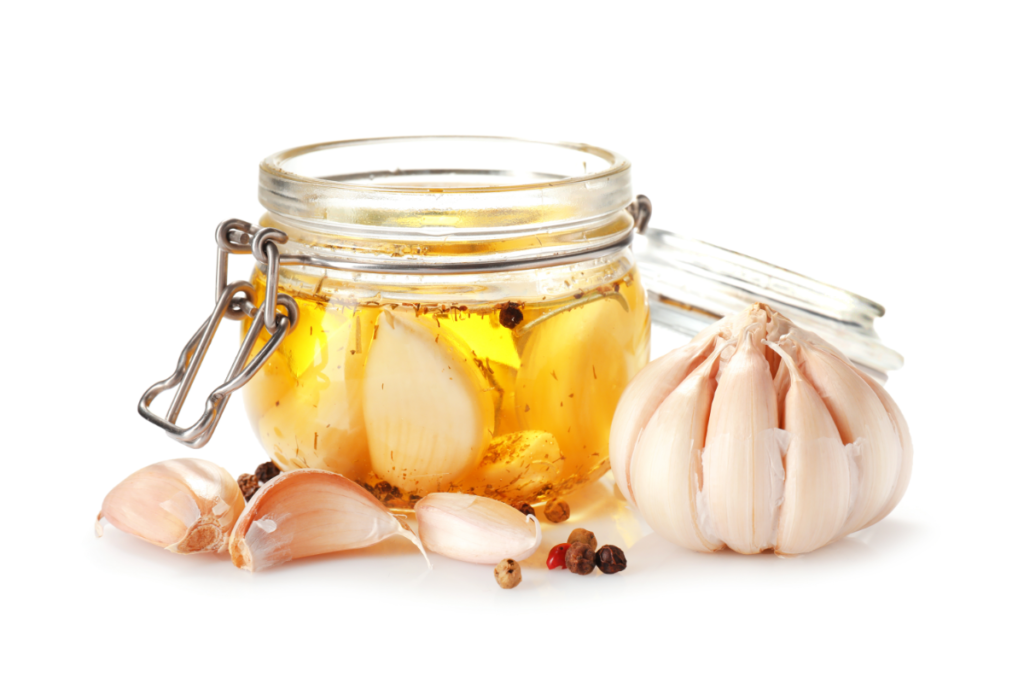
Volatile oils, also known as essential oils, are natural plant extracts that are highly concentrated and contain the unique aromatic compounds responsible for the distinct flavors and fragrances of various spices. These oils are extracted from different parts of plants, such as leaves, flowers, stems, seeds, and bark, through processes like steam distillation, solvent extraction, or cold pressing.
Volatile oils are prized for their potent flavors and aromas, which can transform ordinary dishes into extraordinary culinary experiences. They are widely used in cooking, perfumery, aromatherapy, and traditional medicine due to their therapeutic properties.
━What Makes Volatile Oils Unique?━
Volatile oils are characterized by their ability to evaporate at room temperature, hence the term “volatile.” This evaporation process releases aromatic compounds, allowing us to smell and taste the distinct flavors of spices. It’s these volatile compounds that give spices their signature aromas and flavors.
Each volatile oil has a unique combination of aromatic compounds, which contribute to its specific scent and taste. For example, the volatile oil in cinnamon contains cinnamaldehyde, which gives it its warm, sweet, and slightly spicy flavor. On the other hand, the volatile oil in peppermint contains menthol, which gives it a refreshing and cooling sensation.
By understanding the nature of volatile oils and the specific compounds they contain, we can appreciate the depth and complexity they add to our spice-based dishes, as well as harness their potential health benefits.
The Role of Volatile Oils in Spices
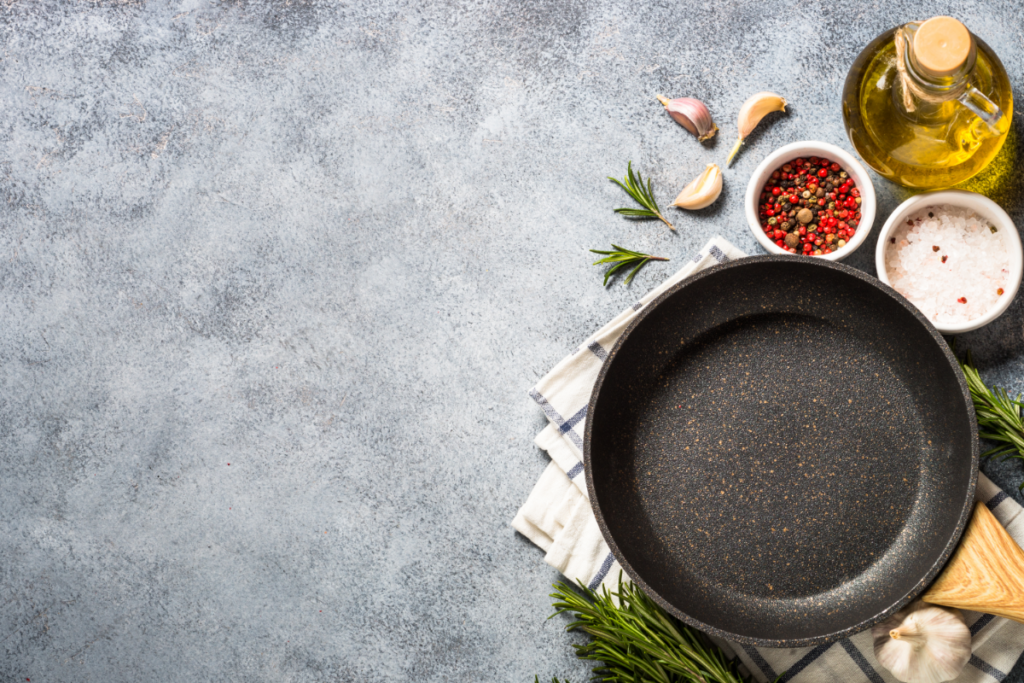
Volatile oils play a crucial role in spices by providing their characteristic flavors and aromas. These oils are responsible for the unique sensory experience that spices offer in various culinary preparations. The volatile compounds in these oils interact with our taste buds and olfactory receptors, stimulating our senses and creating the familiar and distinctive tastes and smells we associate with different spices. The presence of volatile oils in spices sets them apart from other ingredients and makes them essential for creating flavorful and aromatic dishes.
✔️Enhancing Taste and Aroma
When we think of spices, the first thing that comes to mind is their bold and distinctive flavors. Volatile oils are the key contributors to these flavors. They infuse spices with their aromatic compounds, which are released when the spices are heated or ground. These compounds mingle with the food, creating a symphony of tastes and aromas that elevate the overall experience. Whether it’s the warm and comforting scent of cinnamon or the sharp and tangy taste of black pepper, volatile oils enhance the sensory appeal of spices in our favorite dishes.
✔️Preserving Freshness and Quality
In addition to their flavor-enhancing properties, volatile oils also play a crucial role in preserving the freshness and quality of spices. These oils possess antimicrobial properties that help inhibit the growth of harmful bacteria and fungi. By protecting spices from spoilage, volatile oils ensure that they retain their robust flavors and aromas for longer periods. It is particularly important for spices stored for extended periods or used in small quantities, as their volatile oils help maintain their potency and prevent them from becoming stale or bland.
✔️Unlocking Health Benefits
Beyond their culinary contributions, volatile oils in spices offer a range of health benefits. The bioactive compounds present in these oils have been found to possess antioxidant, anti-inflammatory, and antimicrobial properties. Consuming spices rich in volatile oils can help reduce inflammation, support the immune system, and provide natural alternatives for promoting overall wellness. From soothing digestive issues to improving respiratory function, the health benefits of volatile oils make them an invaluable addition to our spice racks.
Health Benefits of Volatile Oils in Spices
Volatile oils in spices offer a range of health benefits due to their bioactive compounds. These compounds possess antioxidant, anti-inflammatory, antimicrobial, and even anticancer properties. By incorporating spices rich in volatile oils into your cooking, you can not only enhance the taste of your dishes but also promote your overall well-being.
Here are some specific health benefits of volatile oils in spices:
- Pain Relief: Certain volatile oils, such as clove and ginger, have been found to have analgesic properties and may help alleviate pain and discomfort.
- Improved Respiratory Function: Spices like cinnamon and nutmeg contain volatile oils that can aid in opening up the airways and improving respiratory function.
- Enhanced Cognitive Function: Some volatile oils, including rosemary and basil, have been shown to have cognitive-enhancing effects, improving memory and focus.
- Improved Cardiovascular Health: Spices rich in volatile oils, such as oregano and thyme, possess compounds that can support heart health by reducing inflammation and promoting healthy blood circulation.
By incorporating these spices into your meals, you can not only add delicious flavors but also enjoy their potential health benefits.
Popular Spices Rich in Volatile Oils
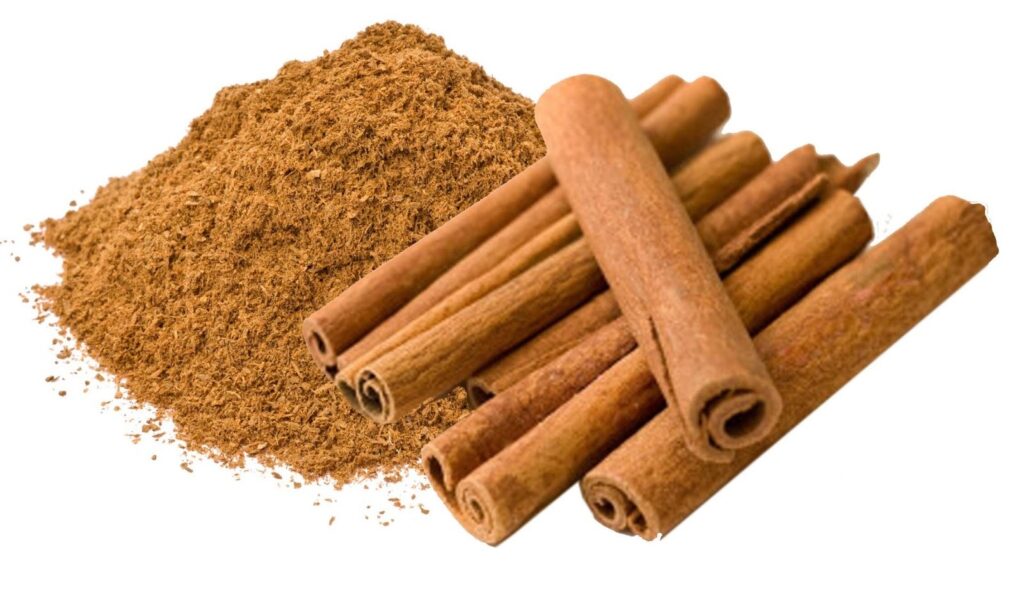
When it comes to spices, several popular options are rich in volatile oils. These oils are responsible for the unique flavors and aromas that spices bring to dishes. Incorporating these spices into your cooking can not only elevate the taste of your meals but also provide you with their health benefits.
👉Clove:
- Distinctive aroma with warm and sweet notes.
- Rich in eugenol, with antioxidant and antibacterial properties.
- Commonly used in both sweet and savory dishes.
👉Cinnamon:
- Warm and sweet flavor with a hint of spice.
- Contains cinnamaldehyde, known for its anti-inflammatory properties
- Used in both sweet and savory recipes, it is perfect for adding warmth and depth.
👉Nutmeg:
- Warm and fragrant spice with a slightly sweet taste.
- Contains myristicin, known for its antibacterial and antifungal properties
- Used in both sweet and savory dishes, it is great for adding depth and richness.
👉Ginger:
- Spicy and pungent flavor with a hint of sweetness.
- Contains gingerol, known for its anti-inflammatory and antioxidant properties
- Used in both savory and sweet recipes, it is perfect for adding a kick to your dishes.
These are just a few examples of popular spices rich in volatile oils. By incorporating them into your cooking, you can add depth, flavor, and health benefits to your meals. So, why not spice up your dishes with these aromatic wonders?
Cooking Tips with Volatile Oils
When using spices with volatile oils in your cooking, there are a few tips that can help you make the most of these flavorful ingredients.
- Start with small amounts: Volatile oils are highly concentrated, so a little goes a long way. Begin by adding a small quantity of the spice to your dish and gradually increase it to suit your taste.
- Add towards the end: To maximize the flavor and aroma of volatile oils, it’s best to add them towards the end of the cooking process or as a finishing touch. It helps preserve the volatile compounds and ensures their flavors are more pronounced.
- Grind whole spices: For an extra flavor, consider grinding whole spices just before using them. This releases the volatile oils and enhances their taste and aroma.
By following these cooking tips, you can unleash the full potential of volatile oils in spices and elevate your culinary creations to new heights. Experiment with different combinations of spices and enjoy the aromatic and health benefits they bring to your dishes.
Storing Spices with Volatile Oils
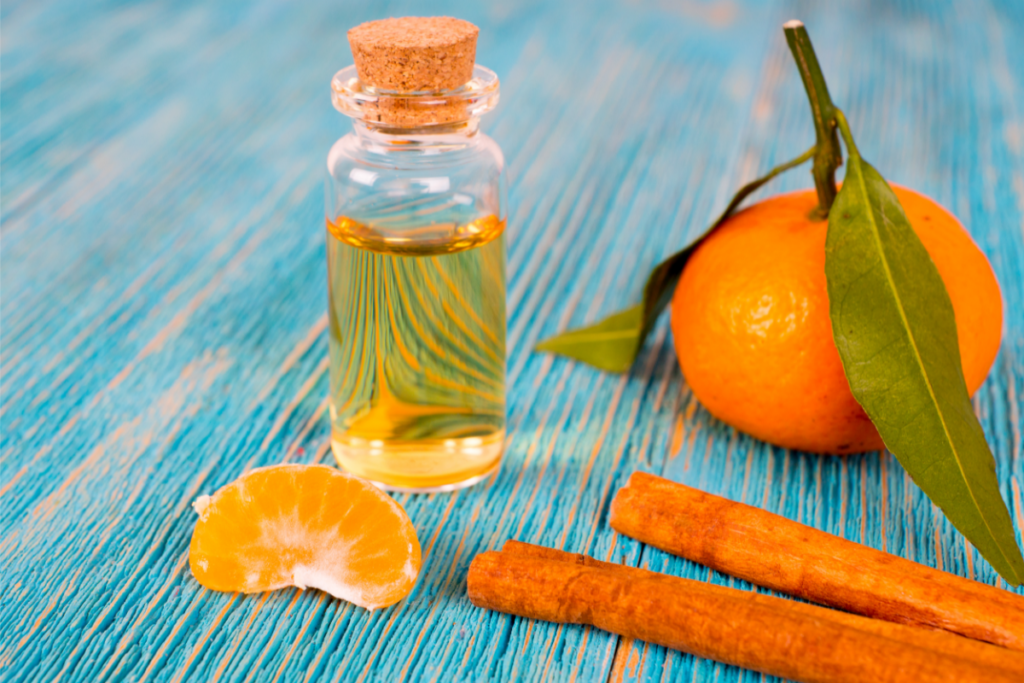
Proper storage is essential to preserve the quality and potency of spices rich in volatile oils. Here are some tips to ensure your spices retain their distinct flavors and aromas:
- Store spices in airtight containers: Volatile oils are sensitive to light, moisture, and air. By storing your spices in airtight containers, you can protect them from these elements and prevent their flavors from deteriorating.
- Avoid direct sunlight: Exposure to sunlight can cause volatile oils to degrade and lose their potency. Keep your spice containers in a cool and dry place, away from direct sunlight.
- Keep away from heat sources: Spices should be kept away from heat sources like stoves or ovens. Heat can cause the volatile oils to evaporate, diminishing their flavors. Opt for a storage location that is cool and away from any potential heat exposure.
By following these storage guidelines, you can ensure that your spices with volatile oils remain fresh and vibrant, ready to enhance your culinary creations with unique tastes and aromas.
Safety Precautions with Volatile Oils in Spices
While volatile oils in spices offer a range of health benefits and culinary delights, it’s important to use them with caution. Some volatile oils may cause allergic reactions or sensitivities in certain individuals. If you have known allergies or sensitivities, it’s best to consult with a healthcare professional before incorporating volatile oils into your diet. It’s important to note that even if you don’t have any known allergies, it’s always a good idea to do a patch test before using a new spice or oil to check for any adverse reactions.
When using volatile oils in cooking, it’s essential to follow recommended usage guidelines. These oils are highly concentrated, so it’s best to start with small amounts and adjust to taste. Excessive use of volatile oils can overpower the flavor of your dishes and may even lead to digestive discomfort. Remember, moderation is key.
Safety Precautions Checklist:
- Consult with a healthcare professional if you have known allergies or sensitivities.
- Do a patch test before using a new spice or oil.
- Follow recommended usage guidelines and avoid excessive use.
- Purchase high-quality spices from reputable sources to ensure safety and purity.
By taking these safety precautions, you can enjoy the benefits of volatile oils in spices while minimizing potential risks. Always prioritize your health and well-being when incorporating new ingredients into your cooking.
Potential Uses of Volatile Oils in Spices
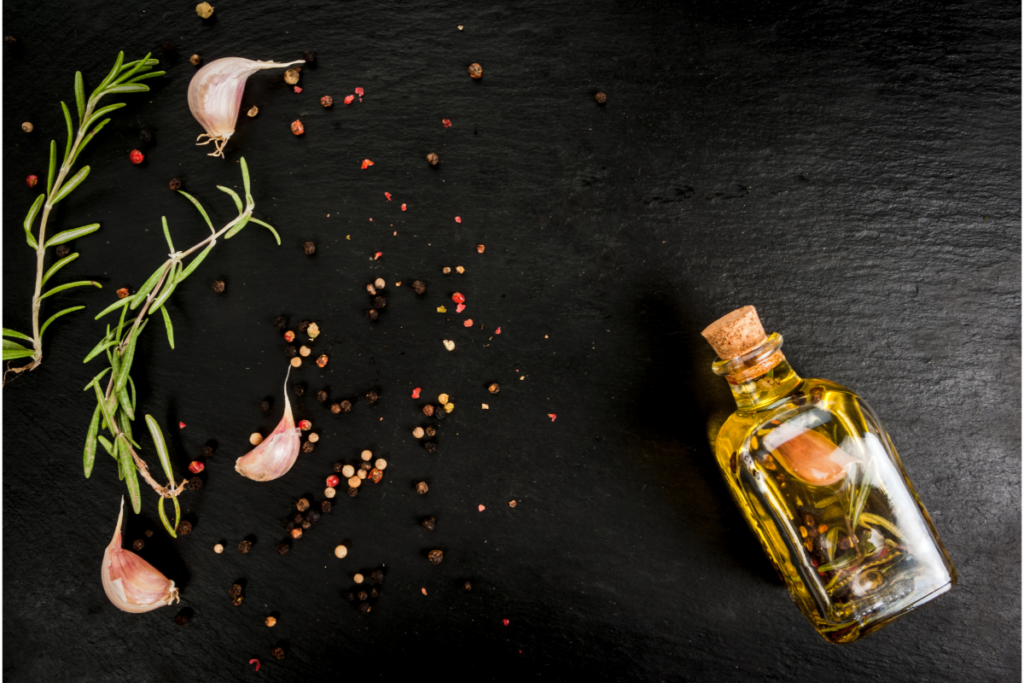
The potential uses of volatile oils in spices extend far beyond culinary applications. These oils have been treasured for centuries for their medicinal properties and can be incorporated into various aspects of your daily life.
✔Traditional Medicine
Volatile oils in spices have long been utilized in traditional medicine for their therapeutic benefits. They possess antimicrobial, antiviral, and antifungal properties, making them valuable ingredients in natural remedies for various ailments. From soothing digestive issues to relieving cold and flu symptoms, these oils offer a natural and holistic approach to wellness.
✔Aromatherapy
Due to their captivating scents and mood-enhancing properties, volatile oils are widely used in aromatherapy. Diffusing these oils into the air can create a calming and uplifting atmosphere, promoting relaxation and reducing stress. You can also incorporate them into massage oils, bath products, and candles to enhance the overall sensory experience.
✔Personal Care
Volatile oils can be incorporated into homemade skincare formulations to take advantage of their rejuvenating properties. From facial serums to body scrubs, these oils can help improve the health and appearance of your skin. They can also be added to natural haircare products, nourishing and promoting scalp health.
By exploring the potential uses of volatile oils in spices, you can harness their full power and incorporate them into different aspects of your daily life. From traditional medicine to aromatherapy and personal care, these oils offer a natural and flavorful way to enhance your well-being.
Future Perspectives on Volatile Oils in Spices
As the demand for natural and sustainable food products continues to grow, the future of volatile oils in spices looks promising. Scientists and researchers are actively exploring new extraction techniques to improve the yield and purity of the bioactive compounds found in these oils. By refining the extraction process, they aim to unlock even more health-promoting benefits and enhance the quality of volatile oils in spices.
Furthermore, ongoing research is focusing on the specific health benefits of different volatile compounds present in spices. This research aims to uncover the potential applications of these compounds in medicine and wellness practices. As we gain a deeper understanding of the unique properties of each volatile compound, we can harness their full potential and develop targeted treatments and remedies.
The future of volatile oils in spices also holds exciting possibilities in the culinary world. As consumers become more conscious of the ingredients in their food, the demand for flavorful and aromatic dishes will continue to rise. Chefs and home cooks will explore innovative ways to incorporate these oils into their recipes, taking advantage of their distinct tastes and aromas.
Frequently Asked Questions
Can volatile oils in spices go rancid or expire over time?
Yes, volatile oils in spices can go bad over time. Exposure to air, light, and heat can make them go rancid, which affects the flavor and aroma of the spice.
What is the difference between essential oils and volatile oils in spices?
Essential oils and volatile oils are quite similar. Still, essential oils are usually more concentrated and often used for therapeutic or aromatic purposes, while volatile oils are natural flavor and aroma compounds found in spices.
Are volatile oils used in traditional medicine or aromatherapy?
Yes, volatile oils are used in traditional medicine and aromatherapy for their potential health benefits and pleasant scents. They’re often used in remedies and diffusers.
What is the process of steam distillation for extracting volatile oils from spices?
Steam distillation is a method to extract volatile oils from spices. Spices are heated with steam, and the oils evaporate. The vapor is then condensed into liquid form, separating the volatile oils.
Are there any spices that do not contain volatile oils?
Most spices contain some volatile oils, but the concentration can vary. Some spices have very low levels, but it’s rare to find spices with no volatile oils.
How do volatile oils contribute to the shelf life of spices?
Volatile oils play a role in preserving spices. They have antimicrobial properties, which can help prevent the growth of bacteria and fungi, thus extending the shelf life of spices.
Final Words
In conclusion, volatile oils in spices are not only responsible for the unique flavors and aromas that enhance our culinary creations, but they also offer a wide range of health benefits. By understanding the role of volatile oils in spices, you can unlock their full potential in your cooking and elevate your dishes to new heights.
Popular spices rich in volatile oils, such as clove, cinnamon, and ginger, add depth and complexity to your dishes while providing numerous health benefits. The bioactive compounds in these oils have antioxidant, anti-inflammatory, and antimicrobial properties, making them valuable additions to your diet.
As the interest in natural and sustainable food products grows, so does the potential for volatile oils in spices. Ongoing research and advancements in extraction techniques offer exciting possibilities for their future applications in medicine and wellness. So, embrace the power of volatile oils in spices, and let them enrich your cooking and well-being journey.

